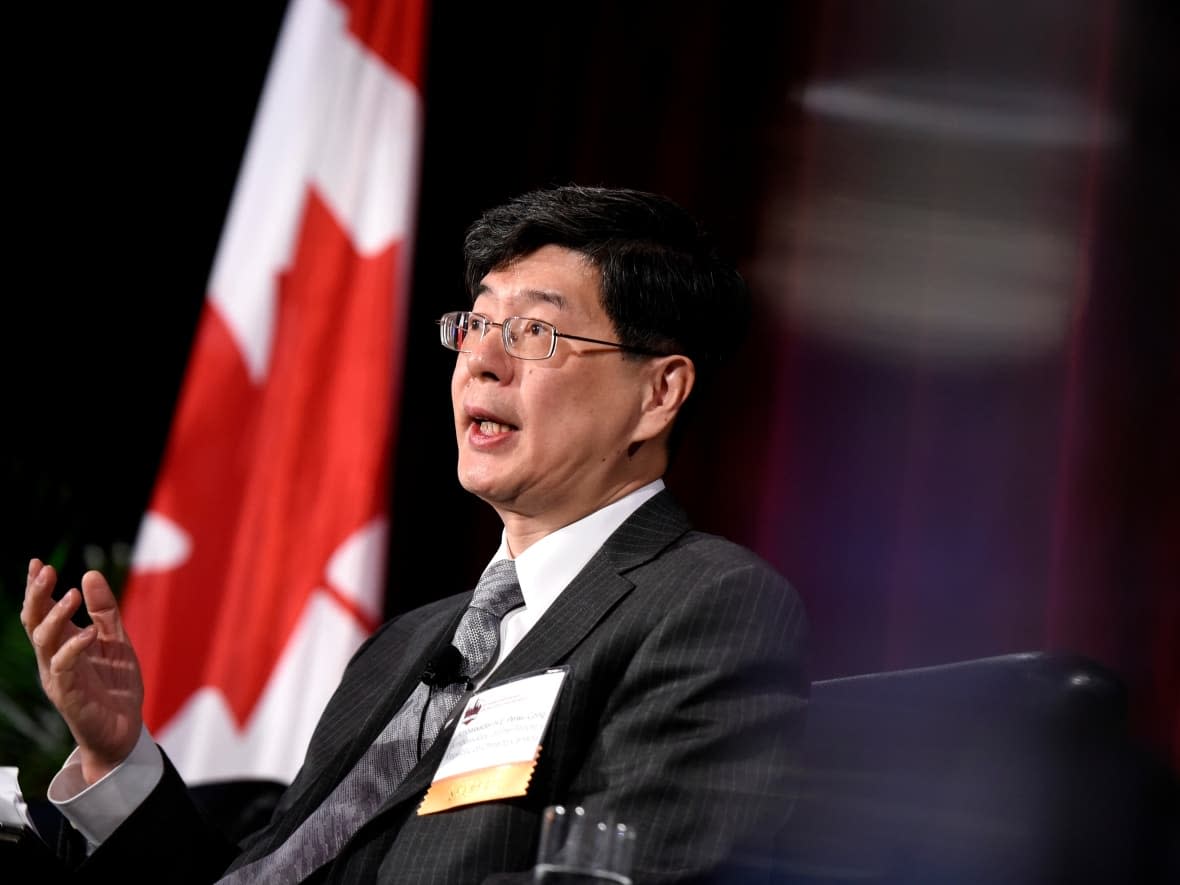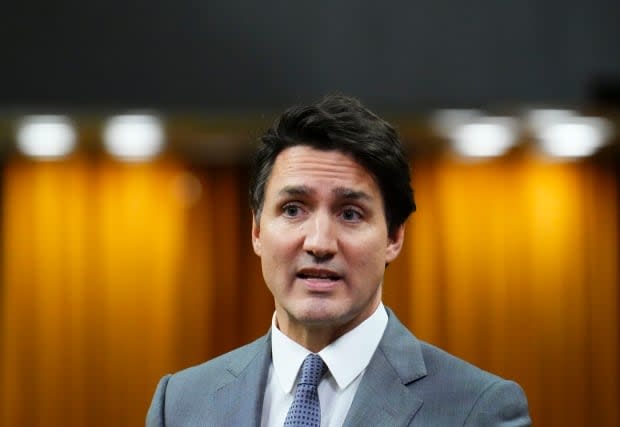PM, leaders denounce U of O for banning cameras at Chinese ambassador's lecture

Prime Minister Justin Trudeau is among several Canadian leaders to criticize the University of Ottawa for banning cameras at an event with the Chinese ambassador to Canada, Cong Peiwu, at one of its lecture halls on Monday — calling it an obstruction of the freedom of the press.
Thousands of Chinese people have taken to the streets of Beijing, Shanghai, Wuhan and several other Chinese cities for several days to protest the zero COVID policy over the past week. Meanwhile, the Chinese ambassador to Canada held a conference at the University of Ottawa titled, China and the World: Development, Trade and Governance in the 21st Century.
Journalists from various media were there, when all of a sudden, the university agreed to comply with Cong's demands to prohibit the presence of cameras in the room. A Radio-Canada cameraman was shown the door.
The university proceeded to lower the blinds in order to hide the view of a demonstration in support of Uyghurs, which was being held at the same time outside the building.

'Extremely unfortunate' and 'undemocratic': critics
That decision did not go over well with the prime minister.
"For me, they made a mistake, banning the cameras," Trudeau said, adding that it's common practice for media to have access to public figures in Canada.
Several other politicians and experts also denounced the university's decision. Canadian Heritage Minister Pablo Rodriguez said freedom of the press should have taken precedence over the wishes of the ambassador.
"I find that extremely unfortunate. Our country was built on the principle of freedom. Often, we are happy to see you [journalists], sometimes less so. But you still have your business to be there. And in Canada, freedom of the press is non-negotiable," he said.

The leader of the Bloc Québécois, Yves-François Blanchet, said he was worried about the message the University of Ottawa was sending to young people.
"We must remind the University of Ottawa that the word diplomat does not apply so easily to someone who represents the Chinese Communist Party. We're talking more about a bully," Blanchet said in French.
"That the University of Ottawa lent itself to this seems to me unworthy of an institution that is supposed to play a strong role with young people. If one of my children told me that it tempts him to go to the University of Ottawa, I will say to him, 'do you have a plan B, please?'"
New Democratic Party Leader Jagmeet Singh stressed the importance of Canada's democratic values.
"We must have transparency, we must support freedom of the media. This is fundamental for a democratic society," he said.
Marc-François Bernier, a journalism professor at the University of Ottawa, called the decision "undemocratic," particularly because the university has a digital journalism program.
According to Bernier, the university would have had more to gain by being stern with the ambassador.
He said the university wouldn't have looked bad if the conference was cancelled.
Instead, he said the university "bent under the threat ... of a totalitarian and authoritarian view."
The president of the Professional Federation of Journalists of Quebec, Michaël Nguyen, also denounced the decision.
"It's a slippery slope, very dangerous, and I weigh my words when I say that in Canada we must be able to respect the Canadian rules of practice in relation to journalism," he said.
University says it won't happen again
University president Jacques Frémont tweeted in French Wednesday morning that the school made the wrong decision at the last moment, and apologized to the media involved.
"We should have done better to protect the freedom of the press."
In a written statement, a University of Ottawa spokesperson stressed that its conference was at risk of being cancelled if the cameras were admitted and said that journalists had access to it.
The university also promised to do things differently next time.
"In order to ensure that this regrettable situation does not happen again, the university will try in the future to be clearer with its speakers before holding events, on the possible presence of media," wrote Jesse Robichaud, a spokesperson with the university.

 Yahoo Movies
Yahoo Movies 
